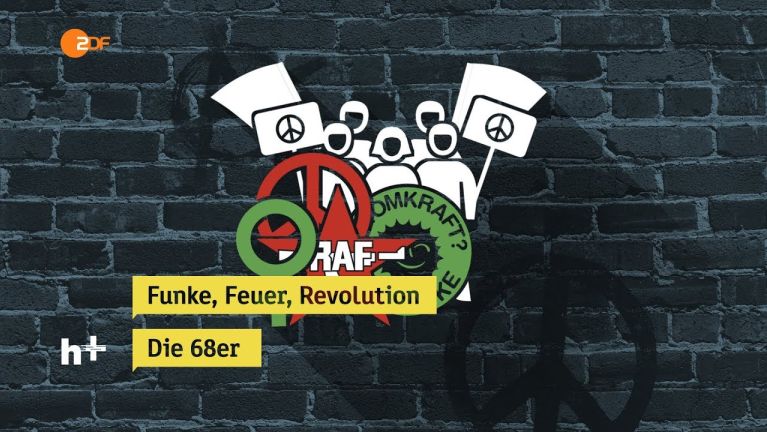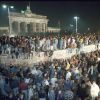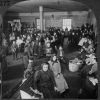History part 4: Close links, loud protests
Jeans and Coca-Cola, anti-Vietnam protests and the Cold War: America was the role model for a generation and nevertheless triggered criticism.
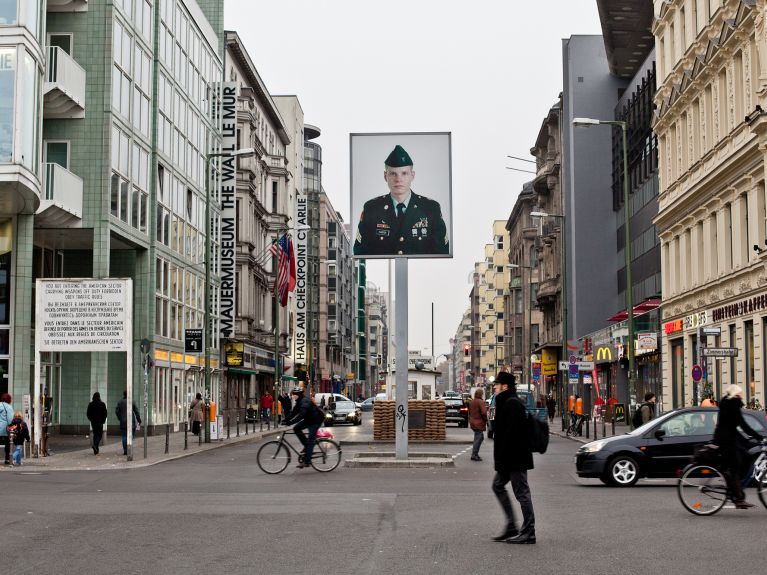
Fledgling West Germany became ever more important for the USA, including for geostrategic reasons. The key stimulus was the Korean War, which broke out in the summer of 1950. After Communist North Korea invaded the South, many feared the Soviet Union might have the idea of expanding in Europe. As a result, the USA invested heavily in the security of West Germany as a bastion against the felt threat from the East.
Economic reconstruction and new-found strength in exports
The Korean War unleashed an economic boom in West Germany. As a result of the Currency Reform of 1948 and strengthened by the economic assistance provided by the Marshall Plan , German companies were back in operation and tied into to global trade . Germany was not allowed to export weapons, but West German companies had the opportunity to enter the capital and consumer goods market in a big way. German business got back on its feet again. Between 1950 and 1960 the gross domestic product (GDP) index rose from 100 to 215, with the economy growing at an impressive average of 7.6 percent a year. Suddenly, Germany was playing a role in international trade, attracting capital, and developing its prowess in exports. For the country that had lost the War, the upturn was an economic miracle.

Jeans and Rock ‘n’ Roll – the new casualness
The transatlantic partnership between West Germany and the USA became ever closer, culturally speaking, too: America became the role model for an entire generation. The insignia of the American way of life became popular first among the working-class “young dudes” and then among middle-class teenagers: jeans and casualness, Rock ‘n’ Roll and Coca-Cola, James Dean and Marlon Brando. America stood for the future, for what was considered modern, for consumer culture, for a light touch and coolness.
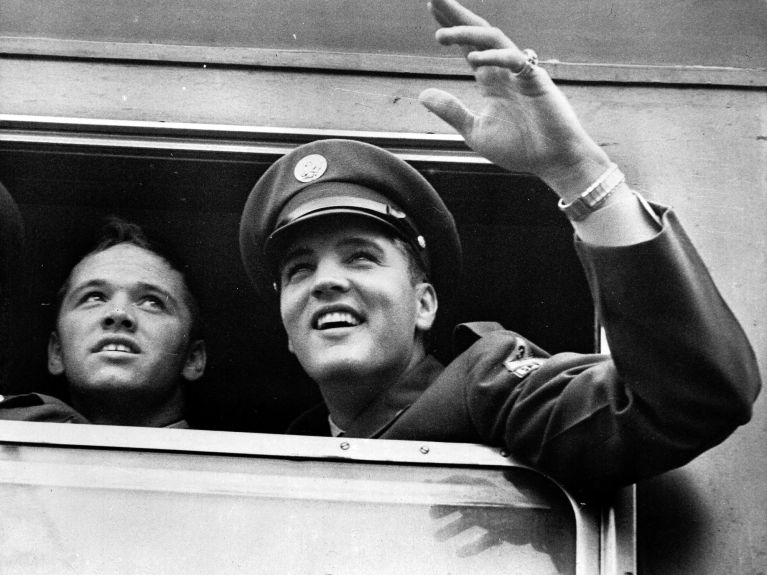
“Ich bin ein Berliner”
One highpoint in the German-American friendship story was President John F. Kennedy’s visit to Berlin in June 1963. People in Germany provided the charismatic politician with a heartfelt and enthusiastic welcome. To mark the anniversary of the Air Lift, Kennedy spoke the legendary words in Berlin: “All free men, wherever they may live, are citizens of Berlin, and therefore, as a free man, I take pride in the words "Ich bin ein Berliner.” The US President guaranteed Berlin’s freedom from Communism – and the city’s inhabitants feted him.
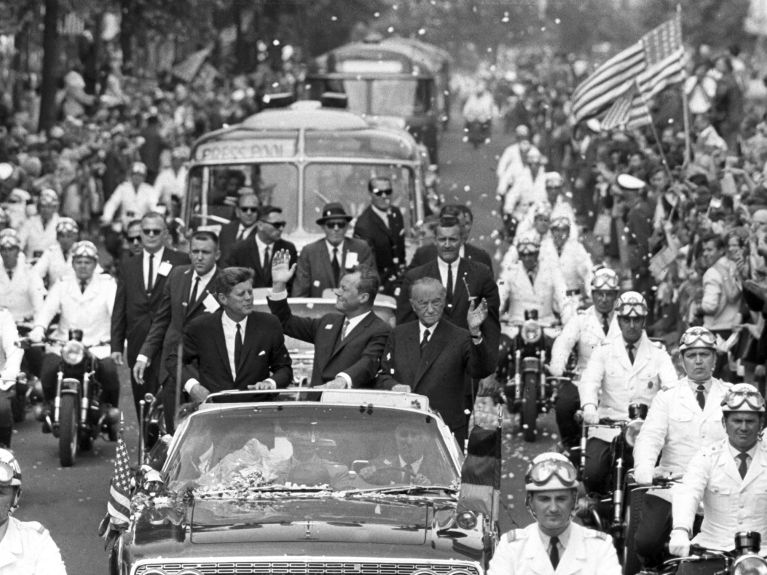
People in East Germany experienced things differently, as the state came under the influence of the Soviet Union. As the new protecting power guaranteeing freedom, the USA’s hands were tied in Eastern Europe, and a nuclear war hung like a constant threat over the Continent. Neither during the popular uprising in East Germany on 17 June 1953 nor during the 1956 Hungarian Uprising was the USA able to respond. At the latest with the building of the Berlin Wall on 13 August 1961, the battle against Western cultural influences became a key strategic goal of the East.
Protest movement and detente
The US war in Vietnam changed the relationship between West Germany and the USA. During the 1960s a protest movement arose in the USA itself and it swiftly spread to Europe. In West Germany many viewed US foreign policy increasingly critically, with protest marches and anti-American gatherings the result. The Hippie movement that arose in California also fired the imagination of many young people in Germany: flower power, an anti-authoritarian mindset, liberation from middle-class compulsions, and a critique of consumerism shaped an entire generation. The members of the student moment fundamentally questioned the geopolitics of the Cold War . The public sphere, democratic participation, individual liberties, all of this was to be redefined.
Dieses YouTube-Video kann in einem neuen Tab abgespielt werden
YouTube öffnenThird party content
We use YouTube to embed content that may collect data about your activity. Please review the details and accept the service to see this content.
Open consent formBy the end of the 1960s there were strong signs of a sea change in politics, too. Why let the Cold War escalate ever further, if everything could end in a nuclear inferno? Under the banner of “Change through Rapprochement”, West Germany under Federal Chancellor Willy Brandt decided to realign the country’s policies towards Eastern Europe. When, in December 1970, Brandt kneeled down before the monument to those who had died in the uprising against the Germans in the Warsaw Ghetto in 1943, this was interpreted as a symbol of a policy of detente.
